Unlocking our geothermal potential: a Scottish Government visit to the Glasgow Observatory
Gillian Martin MSP visits the UK Geoenergy Observatory in Glasgow to learn about geothermal energy and see the research being carried out at the facility.
15/08/2024 By BGS Press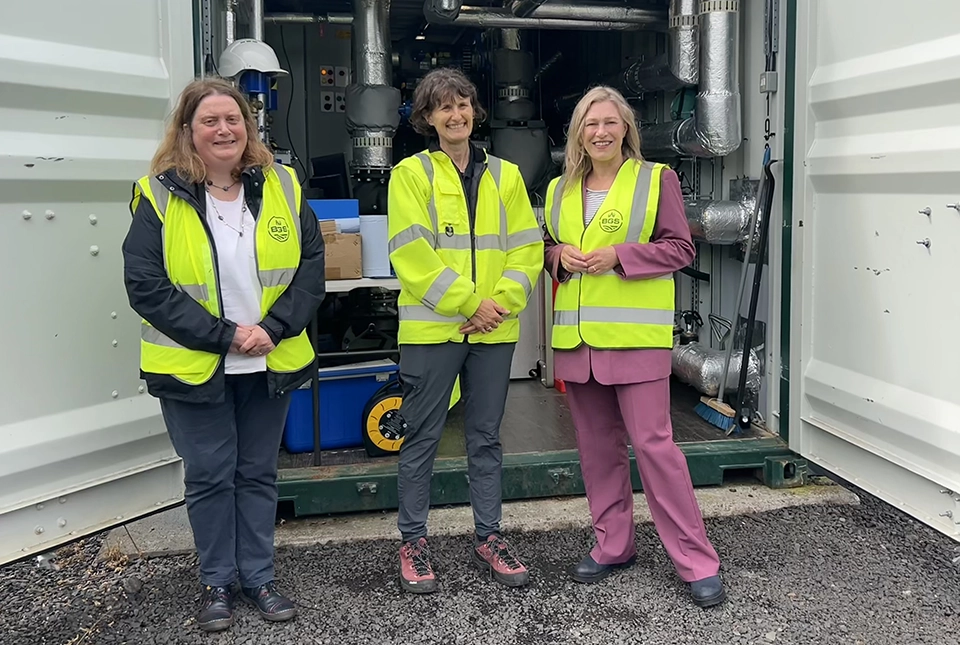
The UK Geoenergy Observatories exist to enable research into the key questions that remain about minewater geothermal, from size and sustainability to environmental impacts. On 7 August 2024, Ms Gillian Martin MSP, the Scottish government’s Acting Cabinet Secretary for Net Zero and Energy, visited the UK Geoenergy Observatory in Glasgow, where she learned about the role BGS plays in supporting understanding of geothermal potential, engaged in a comprehensive dialogue on geothermal opportunities in Scotland, and toured the observatory’s facilities.
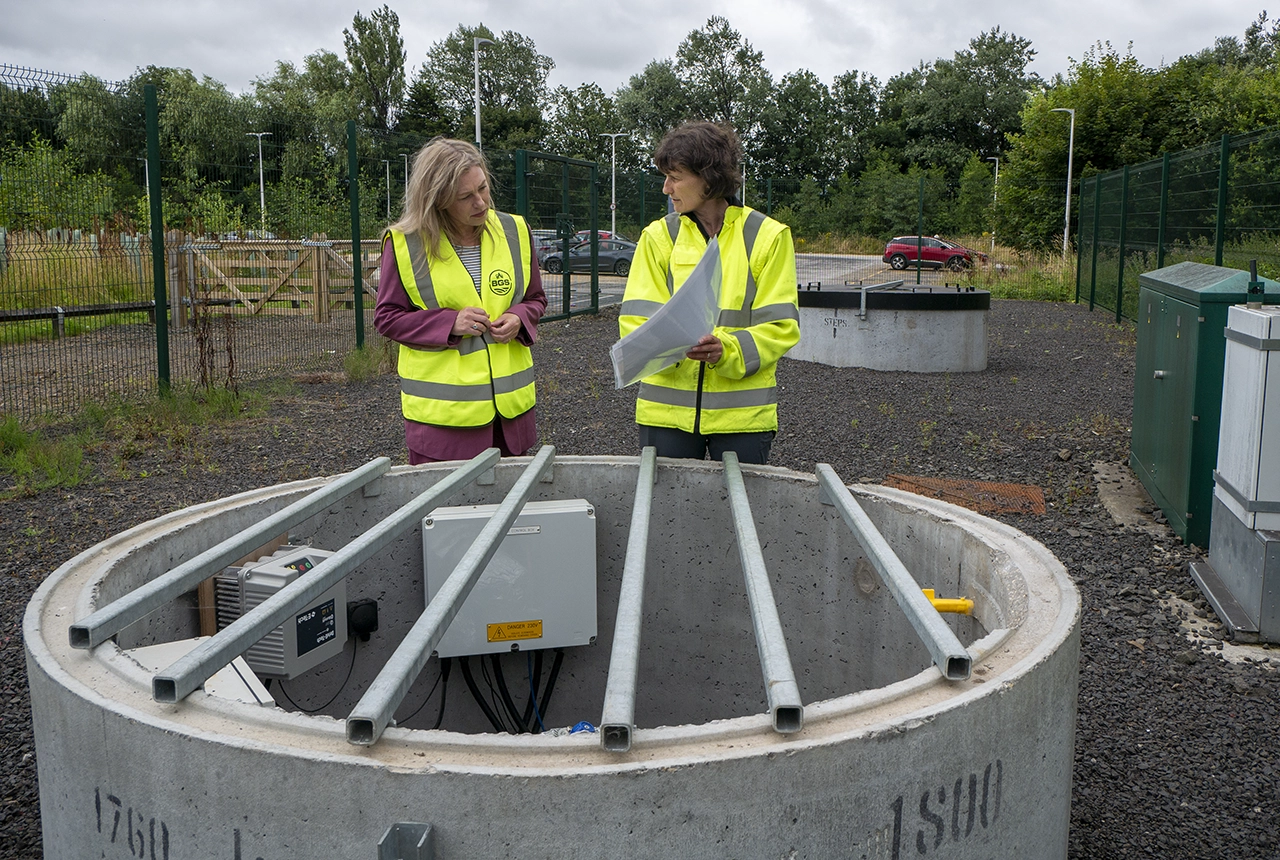
Vanessa Starcher, science and operations lead for the Glasgow Observatory, showing the observatory’s boreholes to Ms Gilliam Martin MSP. BGS © UKRI.
Welcomed by Dr Alison Monaghan, head of BGS Geothermal, and Vanessa Starcher, science and operations lead for the observatory, Ms Martin had the opportunity to observe the observatory’s boreholes and heat centre. Their conversation highlighted the minimal surface footprint of geothermal infrastructure, the reliability of constant temperatures supplied by geothermal energy and the importance of open environmental monitoring data.
Research hub
The Glasgow Observatory is a hub for both academic and commercial research, supporting innovations in mine water heat and underground thermal storage. The extensive monitoring systems in place are revealing intriguing new insights on heat movement underground, enhancing our understanding of how to optimise minewater energy for heat decarbonisation.
The observatory’s facilities provide a unique platform for researchers and innovators to harness and expand upon these findings and there will be exciting opportunities in the near future to join a consortium to address the uncertainties associated with this energy source. This will build upon the successful project partnership that was completed in June 2024, which provided useful insights into topics including heat loss along pipework and different modelling scenarios for geothermal schemes.
White Paper
The discussions with Ms Martin extended beyond the observatory’s gates to broader considerations of the challenges and solutions related to the deployment of geothermal energy in the UK. The recent deep geothermal White Paper and evidence report, jointly authored by BGS and Arup, provided a basis for discussions on government incentives, the evidence for a fall in capital costs and drilling risk as more geothermal schemes are developed, and the impact of current relative costs of electricity.
Wealth of opportunities
Scotland and the UK’s diverse geological landscape presents a wealth of opportunities for shallow and deep geothermal projects, using a range of proven technologies. The role of BGS in this energy transition is to provide underpinning, impartial, national datasets and information. Recent releases, such as the legacy geothermal catalogue and maps of deep geothermal potential areas, are just a few examples of BGS’s contributions to advancing geothermal energy in this country.
As we move towards a greener future, the insights and data gathered through the UK Geoenergy Observatories will be critical in supporting geothermal energy to become a key component of sustainable energy policy.
For those interested in utilising the observatory for research and innovation, please visit the Glasgow Observatory website.
Relative topics
Related news

Goldilocks zones: ‘geological super regions’ set to drive annual £40 billion investment in jobs and economic growth
10/06/2025
Eight UK regions identified as ‘just right’ in terms of geological conditions to drive the country’s net zero energy ambitions.
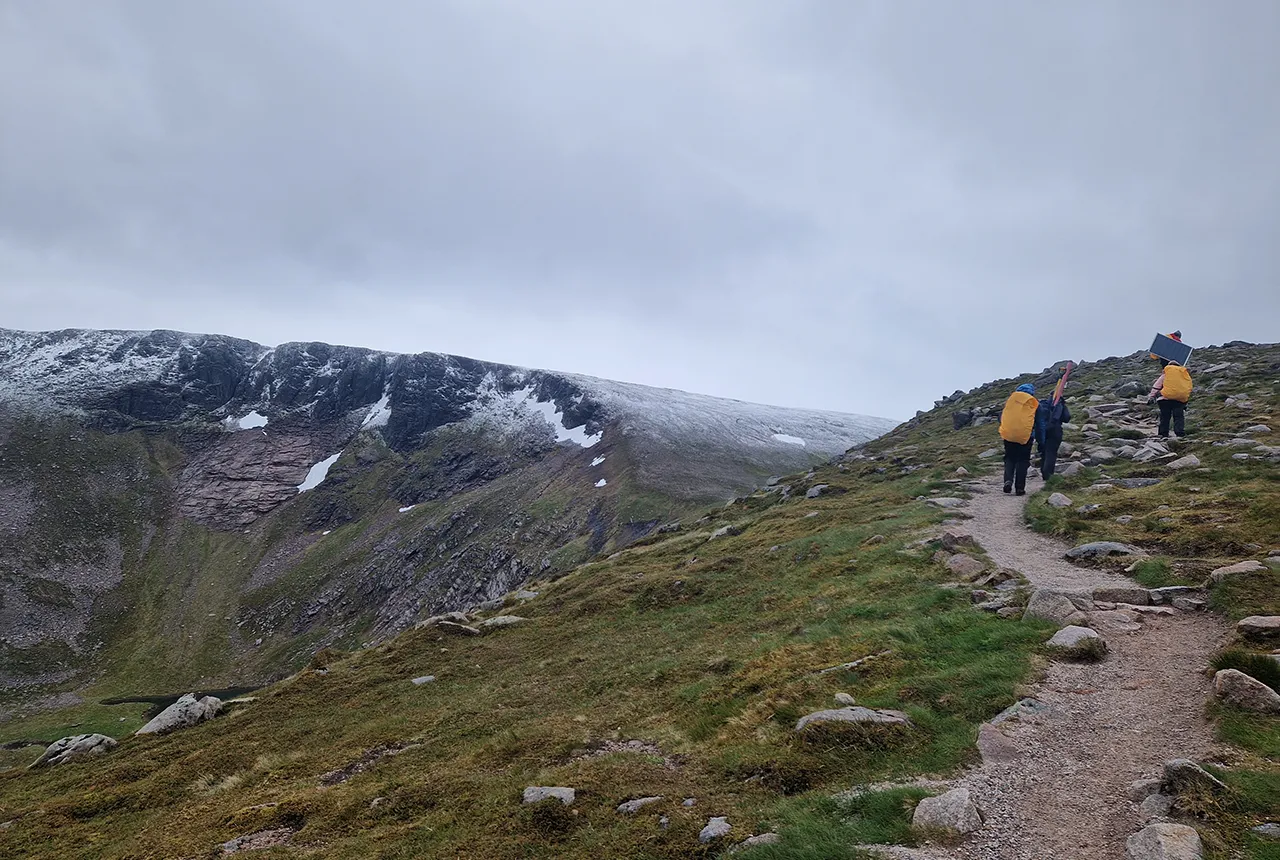
Exploring Scotland’s hidden energy potential with geology and geophysics: fieldwork in the Cairngorms
31/03/2025
BUFI student Innes Campbell discusses his research on Scotland’s radiothermal granites and how a fieldtrip with BGS helped further explore the subject.
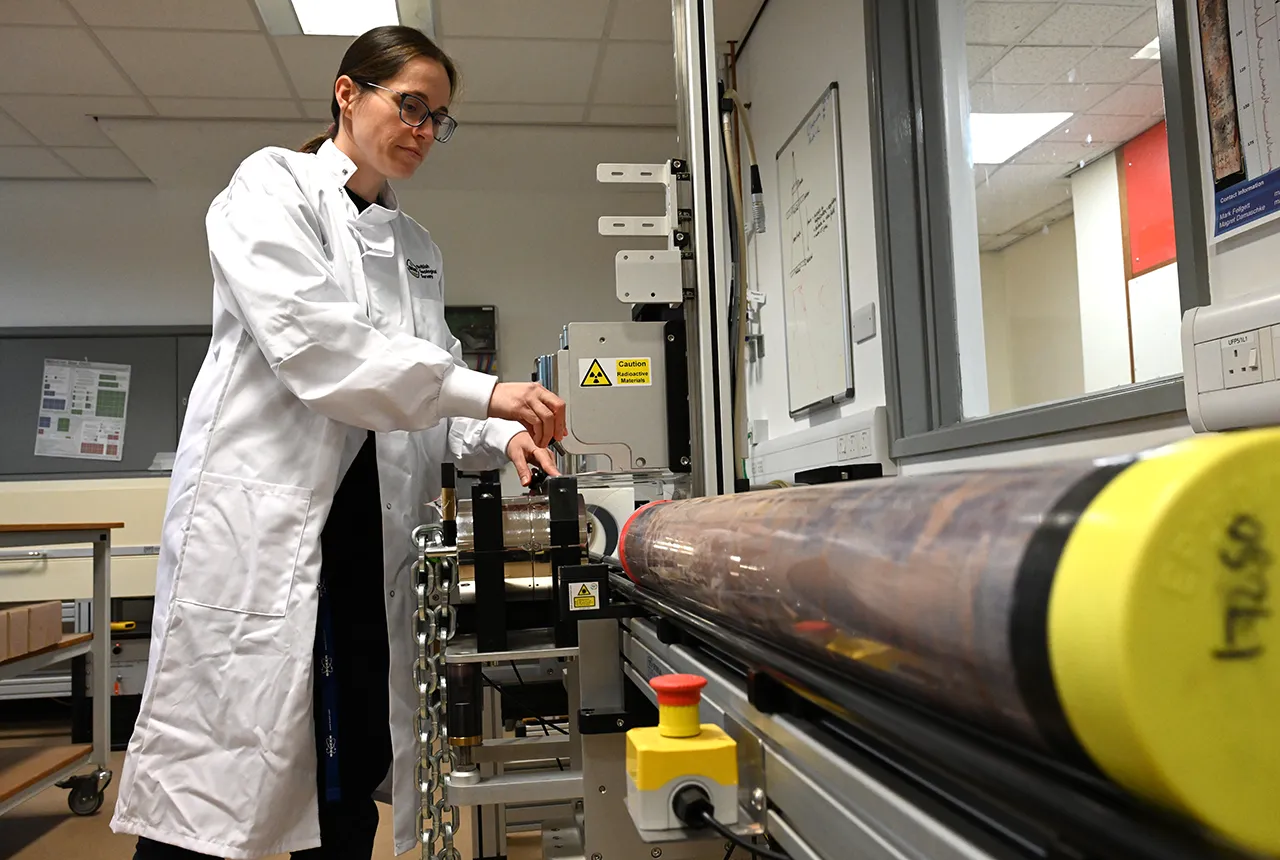
Prehistoric power: 250-million-year-old rocks could contain secrets to net zero future
05/12/2024
BGS has completed a comprehensive scan of Mercia Mudstone rocks that could hold geological secrets of the UK’s past and provide a boost for net zero.
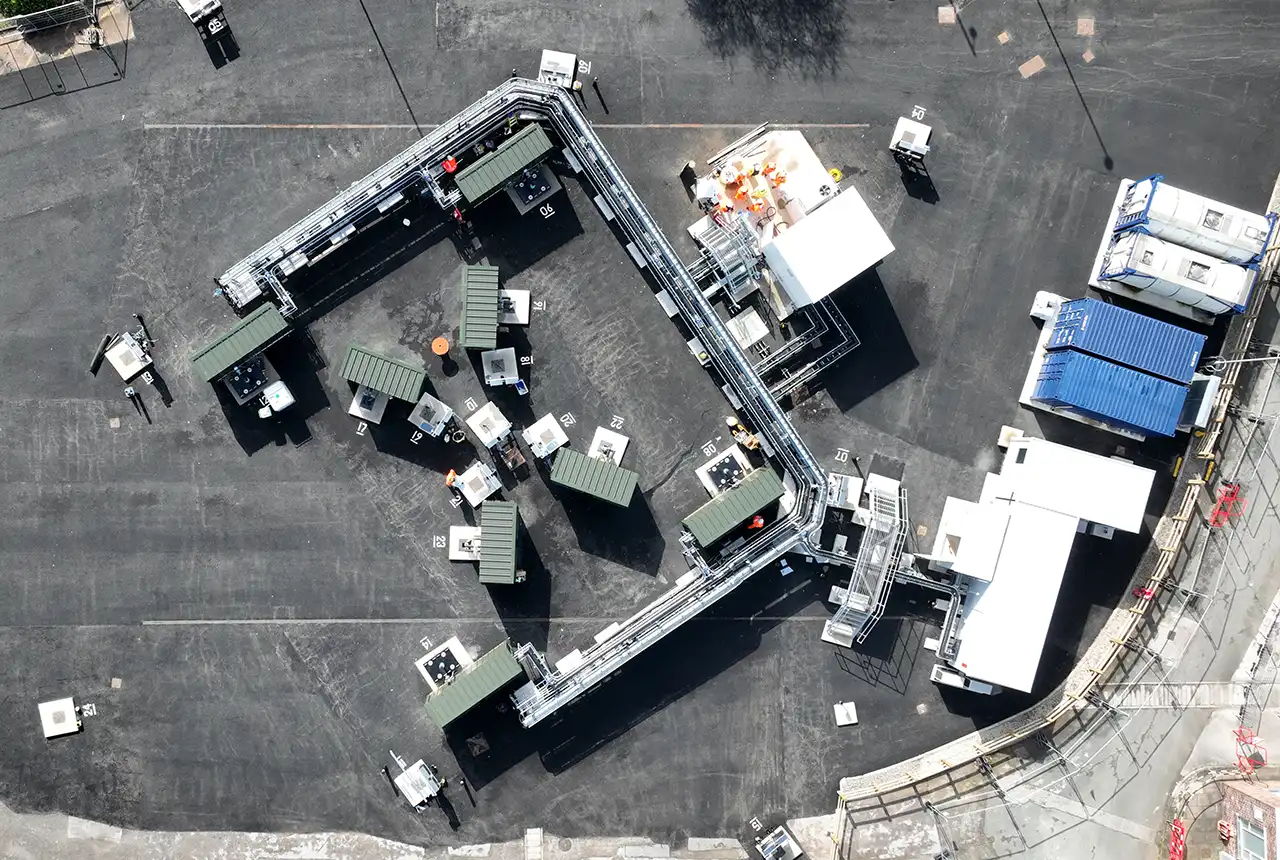
World-class facility creates new opportunities for geothermal energy in Cheshire
10/10/2024
The £8.3 million underground observatory will enhance the UK’s knowledge on the clean energy required to decarbonise heating.
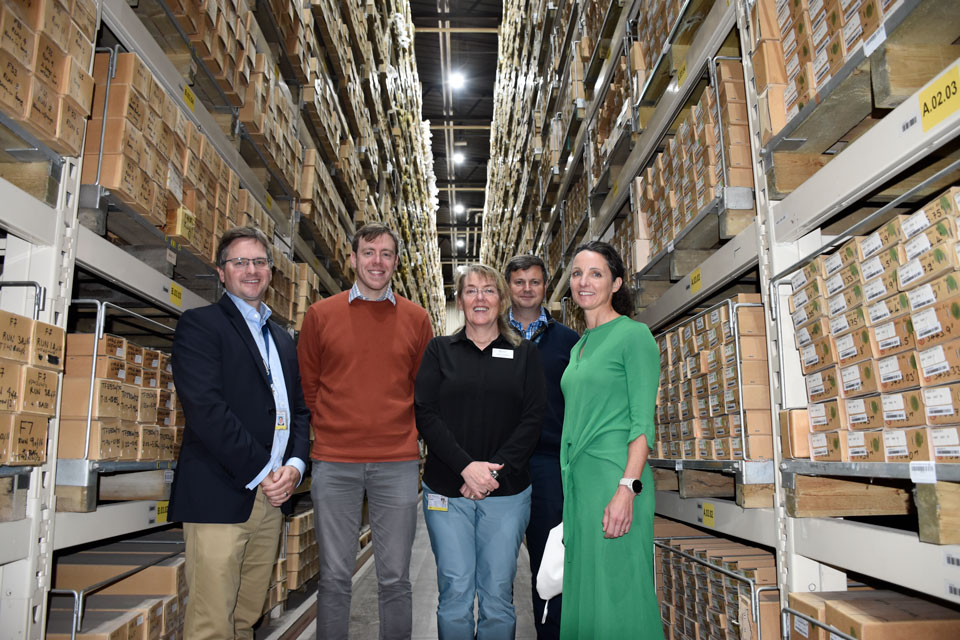
Local MP checks in on development of new geothermal ‘living laboratory’ in Nottinghamshire
19/09/2024
BGS has reached the halfway mark on its ambitious ground-source heat pump project at its headquarters in Keyworth, Nottinghamshire.
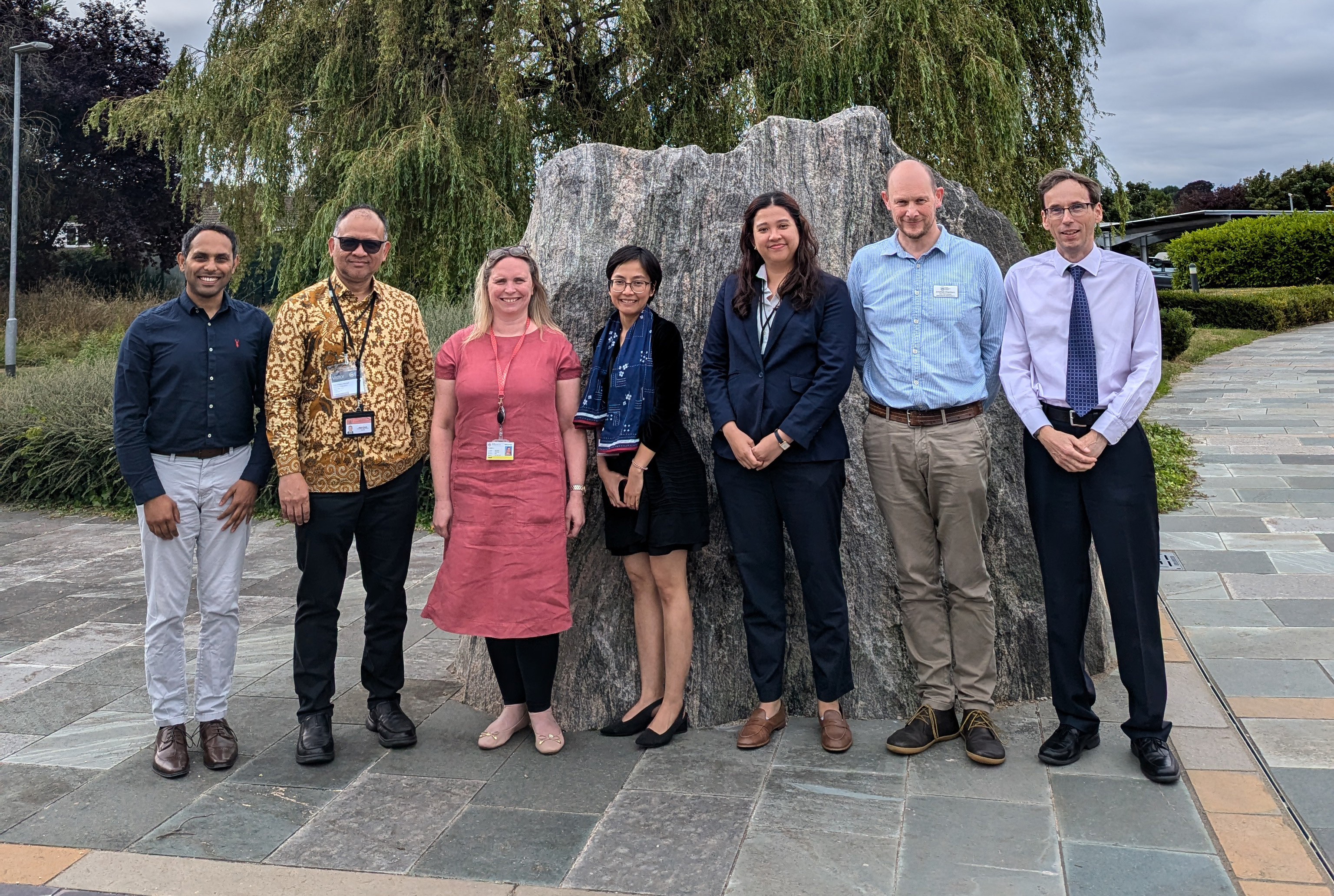
Visit by Indonesian Embassy representatives to BGS
27/08/2024
Strengthening BGS/Indonesia scientific research partnerships to address the complex challenges Indonesia faces from natural hazards and maximising opportunities from mineral resources and geothermal energy.

Unlocking our geothermal potential: a Scottish Government visit to the Glasgow Observatory
15/08/2024
Gillian Martin MSP visits the UK Geoenergy Observatory in Glasgow to learn about geothermal energy and see the research being carried out at the facility.
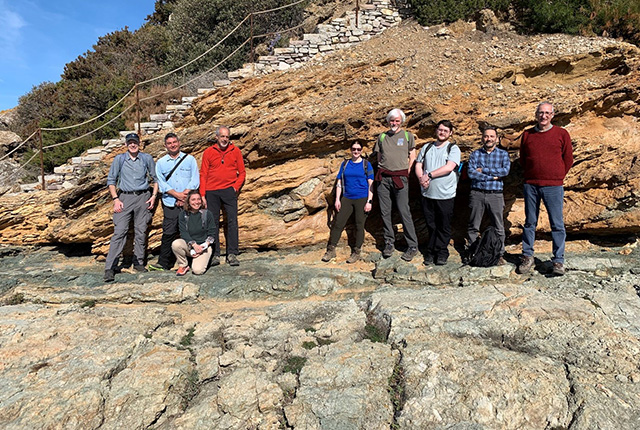
The heat beneath our feet: BGS field visit to Tuscan geothermal systems
05/07/2024
BGS visits the active and fossilised geothermal systems of southern Tuscany, Italy.
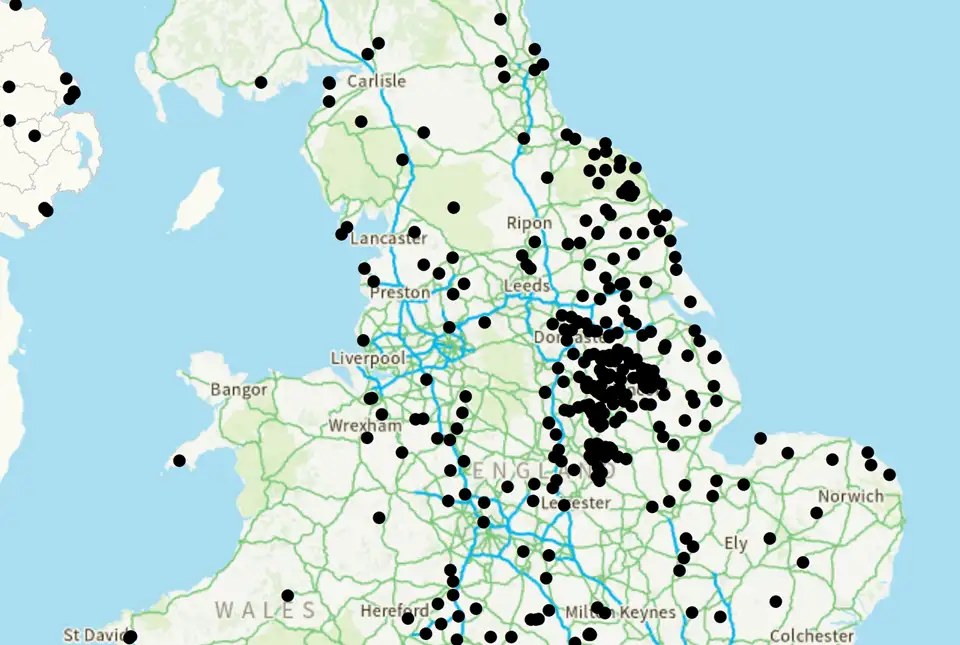
UK legacy geothermal catalogue released in digital format for the first time
18/04/2024
BGS has released the first digital version of the UK legacy geothermal catalogue of subsurface temperature measurements, rock thermal conductivity measurements and heat flow calculations.
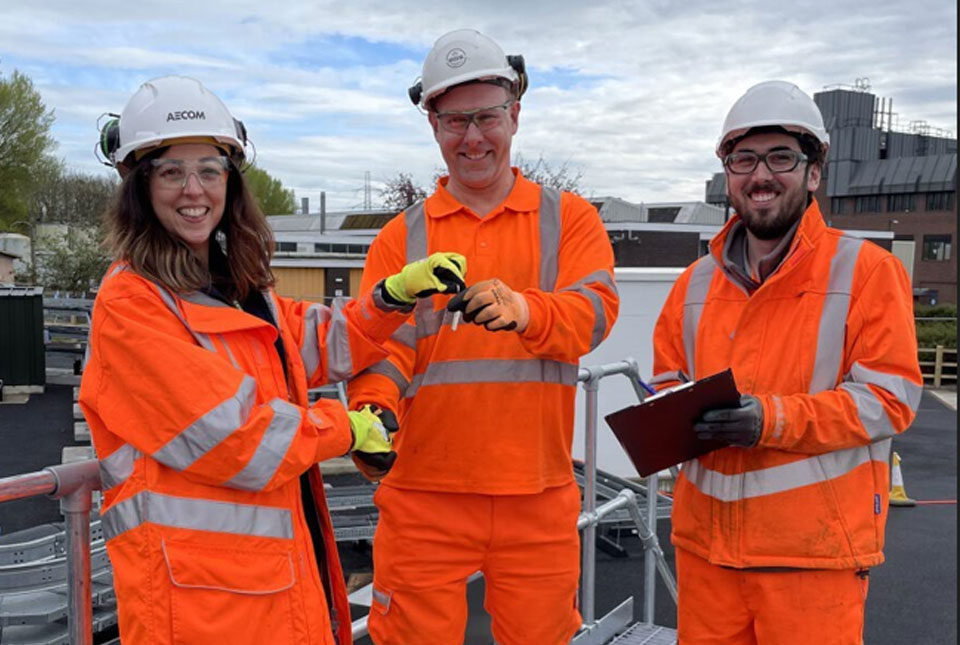
New underground observatory open for research
09/04/2024
Construction has been completed on the Cheshire Observatory and the facility is now open for research activities.
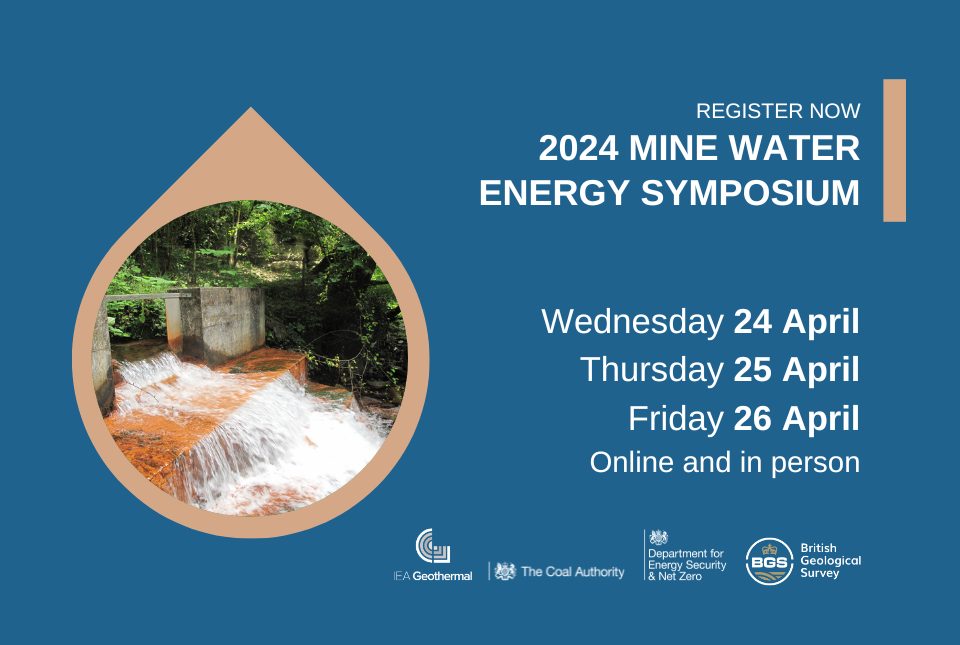
2024 Mine Water Energy Symposium
Event from 24/04/2024 to 26/04/2024
Now in its fourth year, the 2024 Mine Water Energy Symposium will be held in person for the first time in April 2024, with online streaming functionality.
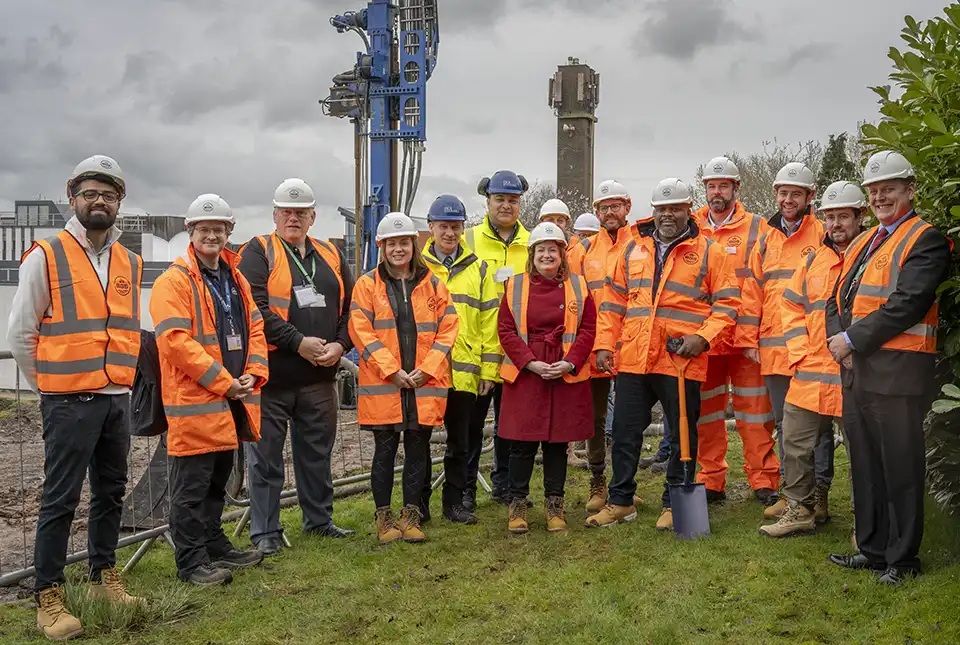
Local MP helps BGS launch a ‘living laboratory’
05/03/2024
BGS is implementing a low-carbon heating system to help meet its net zero targets and provide data to the public.



